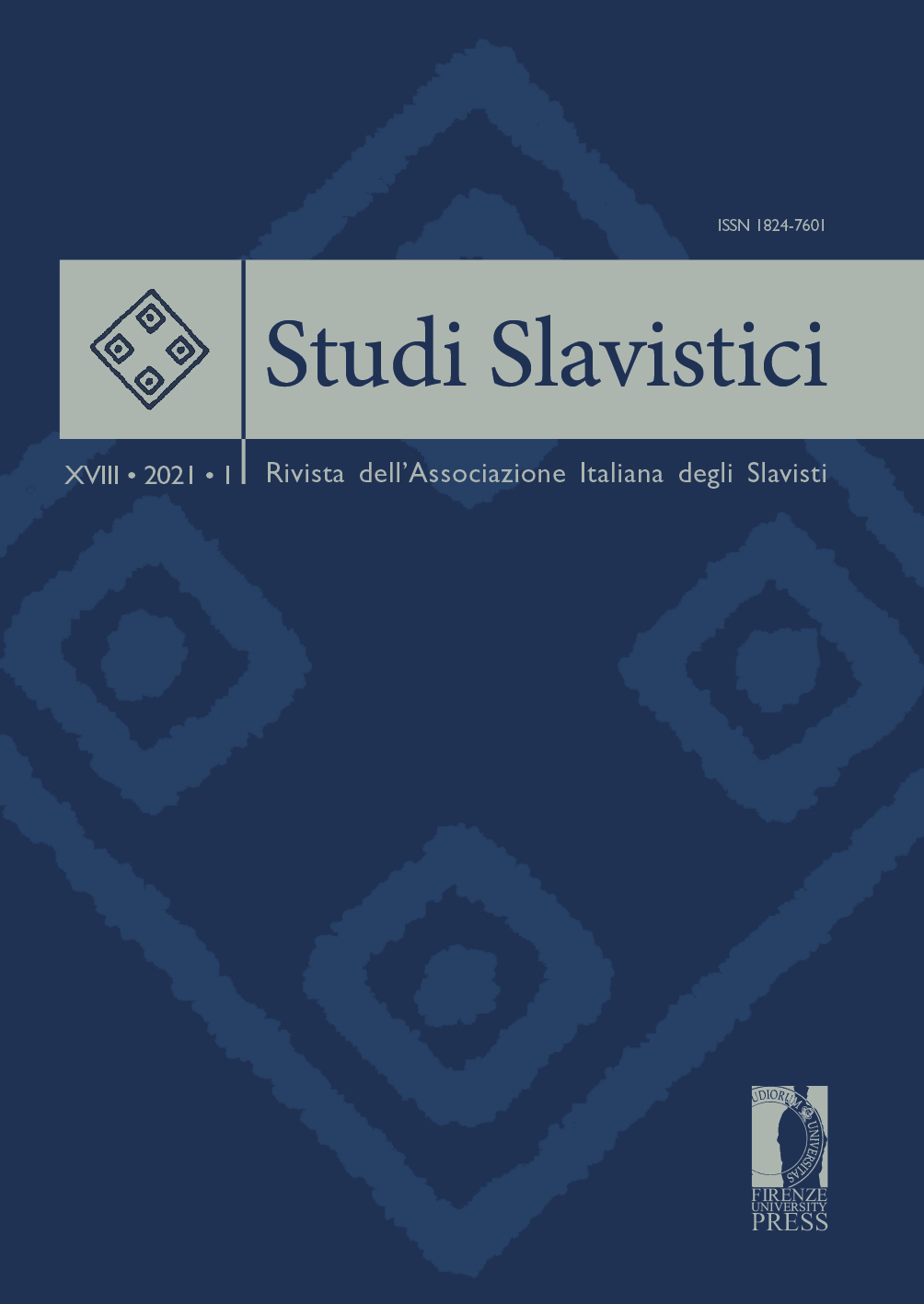The Theme of Exile in the Twentieth-Century Russian Translations of Michelangelo’s Poems on Dante
Published 2021-07-20
Keywords
- Exile,
- Michelangelo’s Poems and Sonnets,
- Andrej Voznesenskij,
- Abram Efros,
- Russian Translation
Abstract
The most famous Renaissance artist Michelangelo Buonarroti, widely known for his achievements in the visual arts, was also a prolific writer; he wrote a large number of sonnets, madrigals, and poems (more than three hundred), which were published posthumously under the title Rime (‘Rimes’). During the last two centuries, were translated into Russian several times (by Kuzmin, Efros, Voznesenskij, Solonovič, Markov, and Kulle. This paper examines and compares the translations of two Michelangelo’ sonnets which are addressed to Dante and treat the topic of exile and were prepared by the art historian and translator Abram Efros in the 1930s and the poet Andrej Voznesenskij in 1974. In the 1970s, Dmitrij Šostakovič composed a suite for bass and orchestra (No. 13) by using Efros’ translation of Michelangelo’s sonnets, and he also asked Voznesenskij to make a new translation. It is accepted that the composer’s wider intention was to speak about Solženicyn; unlike poetic works, in the Soviet Union of the time, poetic translation was, in fact, a means to express something that could not be said otherwise. Russian translators modified Michelangelo’s poetic works by intervening in the text and introducing words or removing passages, thereby approaching the Italian original in a selective way and hiding their personal feelings behind Michelangelo’s and Dante’s. Exile was a productive literary topic. Neither Efros nor Šostakovič nor Voznesenskij experienced forced exile; the same is true for Michelangelo who, in his poems, expresses his admiration for Dante and says that he himself went into voluntary exile in Rome, and worked under the patronage of several pontiffs. Notably, all these authors reconstructed the discourse on exile in an idealised form; as it was for Dante, no one is a prophet in his own land – talents and accomplishments are highly regarded by everyone except those at home.


